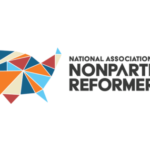After several special elections for congressional seats over the past year, plus an increasingly huge lineup of candidates nationwide for seats in their state legislatures, a glimmer of hope has emerged that our politics may be changing.
At the state and congressional level, candidates who shun the doctrinaire politics of the far left and the far right – the independents, centrists, moderates and pragmatists — may be gaining ground.
On the right, the Alabama Republican Party’s attempt to elect an extremist like Roy Moore failed. On the left, a bid to oust an established Democratic congressman in suburban Chicago, Rep. Andy Lipinski, also met with failure.
Lipinski, a member of the centrist Problem Solvers Caucus in the House, said that he was received with “hearty congratulations” on Capitol Hill after winning his Illinois primary election last week. The reason was that mainstream members of Congress – and at least one progressive – saw Lipinski’s race as another attempt by ideologically purist, hyper-partisan groups to impose their will on all elections.
In an Op-Ed piece written for Real Clear Politics, Lipinski said his Democratic foes represented those who believe compromise is never acceptable. Widening the divide between liberals and conservatives is the goal.
But this is a former political science professor who understands that the Founding Fathers believed in a legislative branch that strives for collaboration and compromise after spirited debate, not blind adherence to a particular political party’s agenda.
In 2018, we have a political structure that is far worse than anything the Founders feared – two dominant parties, a duopoly, in which extremists on the left and right exert a debilitating amount of influence over the legislative process.
Above all else, Lipinski came close to losing his seat in the primary almost entirely because left-wingers could not stomach his stance as an old-fashioned, white-ethnic, pro-life Democrat. Single-issue politics and identity politics tried to portray him as a dinosaur.
Absolutely everything on Capitol Hill, amidst all the perverse gridlock and showy government shutdowns, is about PR and perceptions and members playing the role of a huckster, not a lawmaker. As some in Congress casually claim that the House and Senate will not pass a single significant piece of legislation for the rest of this election year, partisan activities within the Capitol are all about the blame-game and finger-pointing designed to create effective sound bites and 30-second ads as the November elections approach.
Meanwhile, a bottom-up movement to field independent/moderate candidates at the state level – rather than engaging in unrealistic attempts to elect a third-party president – may be gaining traction.
The group known as Unite America (formerly the Centrist Project) recently launched an ambitious goal: elect enough independents to shift the balance of power in several states away from the Republican and Democratic parties, and put independent officeholders in a position to enjoy significant leverage.
The initial slate included three candidates for governor: Alaska Gov. Bill Walker, Kansas entrepreneur Greg Orman, and Maine State Treasurer Terry Hayes. And two candidates for U.S. Senate: Prominent Missouri attorney Craig O’Dear and Maryland business executive Neal Simon.
With the support of the Independent Voters Network (IVN), these candidates will be running under the banner of a pragmatic, problem-solving agenda framed by the “Declaration of Independents.”
In recent days, four additional candidates in this movement emerged, featuring an economic development expert running for state rep in Colorado, a veteran family physician seeking a state House seat in Washington State, a state senator in Kansas running on Orman’s independent ticket, and a 24-year-old Democratic state legislator in Deep Blue Massachusetts who switched to independent status.
Many more candidates are in the works.
“These candidates are the vanguard of a new movement in our politics to bridge the growing partisan divide and to ensure government truly represents the people — not the party bosses or special interests,” said Nick Troiano, executive director of Unite America.
In his column, Lipinski offered this conclusion:
My victory proves that elected leaders willing to work hand-in-hand with peers who hold different points of view — across party lines, or even beneath a single party tent — can and should take that risk. Grassroots organizations frustrated by Washington’s inability to work in a bipartisan fashion — outfits like No Labels and its allied political operation — have put a stake in the ground, making clear that they are prepared to provide the air-cover required when committed problem solvers come under attack from the partisan extremes.
I understand that my determination to work across party lines is seen by some (Democrats) as unacceptable in the face of President Trump’s policies and pronouncements. But I continue to believe that American democracy is miraculous explicitly because it demands that the great bulk of us — public leaders both to my right and to my left — work together. Better ideas emerge because of Congress’ ideological diversity. And as before, I’m eager to collaborate with anyone determined to solve the nation’s problems. That is what Americans want.








